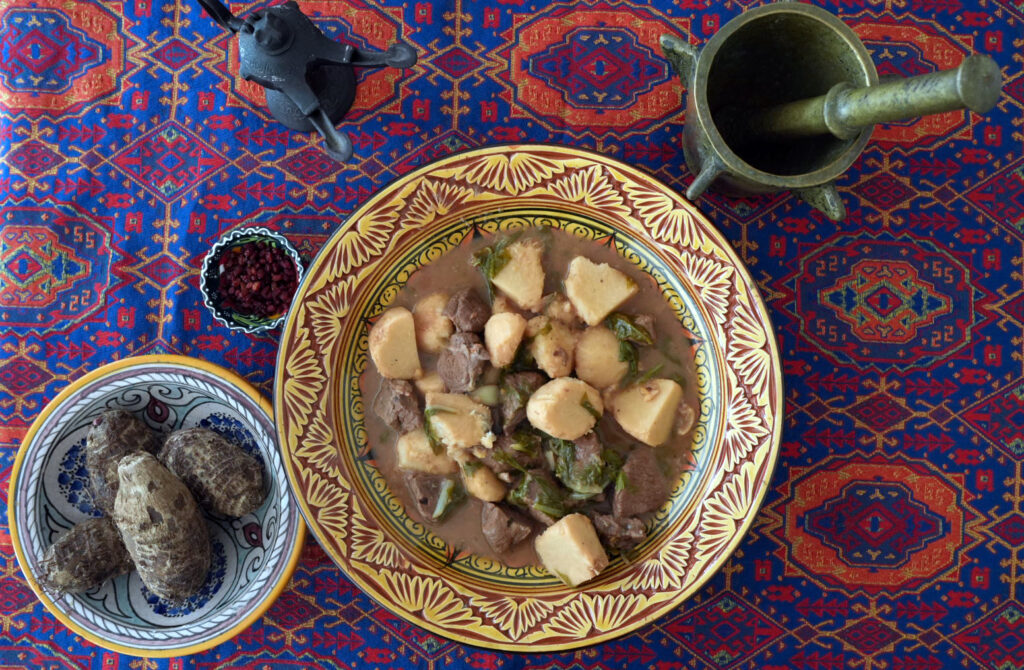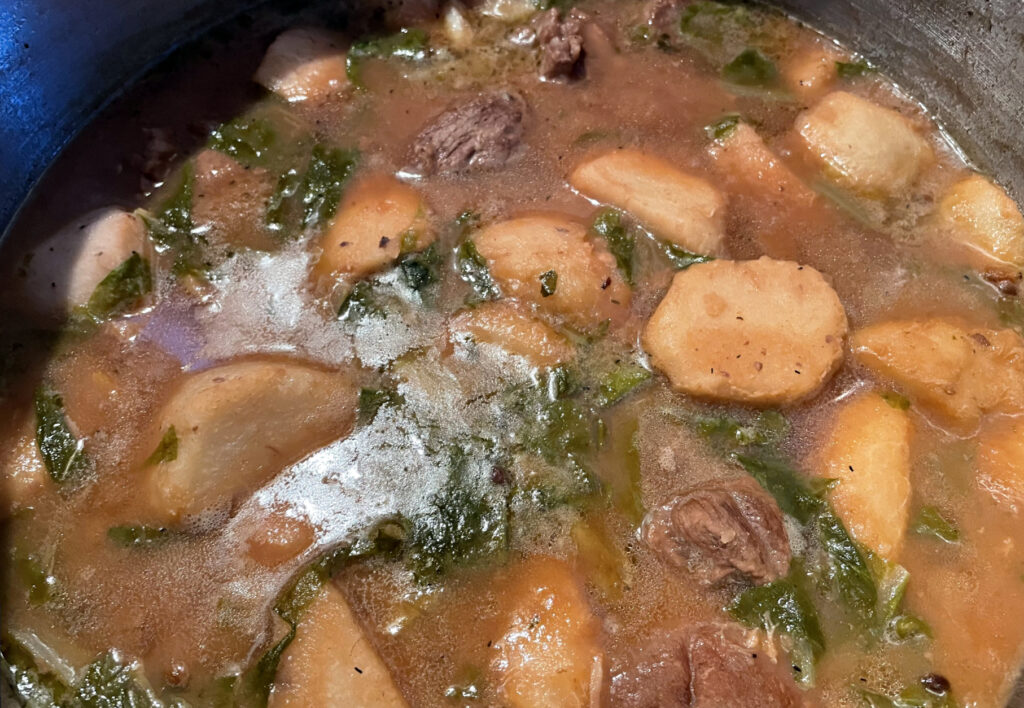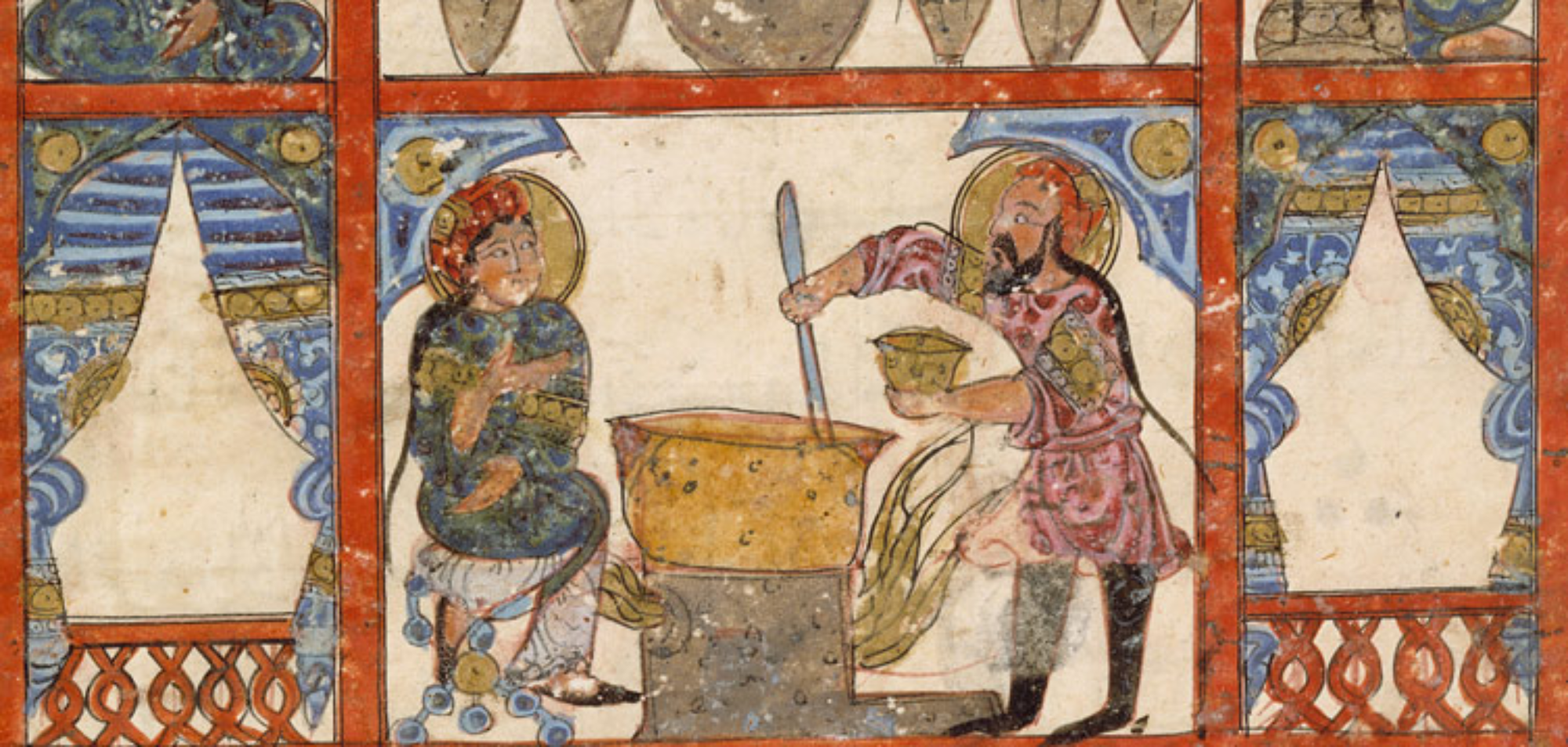A wonderful and unusual recipe from Mamluk Egypt from The Sultan’s Feast with barberries (Berberis vulgaris), known in Arabic as amīrbārīs (أمير باريس) and anbarbārīs (أنبر باريس), or by their Persian name zirishk (زرشك). The other core ingredients are taro, chard and salted lemons (also from The Sultan’s Feast!). The dish, aptly called amīrbārīsiyya, is actually a variation of a sumac stew (summāqiyya). The author tells us that some people would sweeten it with sugar, though this is by no means necessary. According to the 11th-century Baghdadi pharmacologist Ibn Jazla, this stew (which he calls anbarbārīsiyya) is particularly useful for those with hot temperaments and inflamed livers; it is one of the best astringent dishes, and should be made with pullets and partridges. The Sultan’s Feast also contains a recipe shared with a 13th-century Aleppine collection, for a barberry conserve which, when added to chicken with a bit of mint, is beneficial for diarrhoea.



